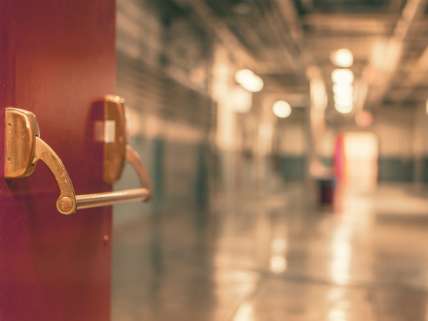Zero Tolerance Does Little To Improve Student Behavior, Says New Study
These laws also disproportionately impact minority students.


A new study published in Education Evaluation and Policy Analysis found that the presence of zero tolerance laws in schools results in increased rates of suspensions and expulsions without imprvoving behavior or order.
The study, authored by F. Chris Curran of the University of Maryland, Baltimore County, used data collected by the National Center of Education Statistics and the U.S. Department of Education, as well as data Curran collected from researching various state laws.
"Taken as a whole, the results of this study suggest that zero tolerance laws on the part of states are not an effective mechanism for improving schools," wrote Curran.
These approaches have also been linked to increased discipline for black and Hispanic students. One instance Curran notes is a state law which has resulted in a three times larger increase in suspensions for black students as compared with their white peers.
This is troubling, considering suspensions and expulsions hinder academic progress and, as Curran notes in his study, "have been linked to future disciplinary infractions, decreased academic achievement, and school dropout."
Zero tolerance laws are based on deterrence theory. The theory states punishments must be present in society to discourage people from committing crime. As a punishment for an act increases in severity, the chances of someone committing said act decreases over fear of dealing with said punishment, at least in theory.
Federal, state, and local leaders push these laws to punish students for various actions, including bringing weapons onto school grounds and drug-related offenses.
Actions like these are worth punishing, but zero tolerance laws punish students equally regardless of circumstance or the severity of the act in question.
Recent instances of absurd zero tolerance abuses include the suspension of a student over a bubble gun and threatened expulsions of two students over fishing knives left in their cars. The students in these situations were harshly disciplined for relatively harmless acts under a system that should be protecting them.
Rather than keeping students safe, zero tolerance laws keep children out of the classroom for what no sane person would consider threathening acts. Schools are supposed to be environments where children learn about various subjects as well as appropriate conduct. Instead of teaching them the best behaviors, schools that enact zero tolerance policies are forcing students to abide by unfair or ineffective rules that punish innocent mistakes as if they were actual threats.
To learn more about the ridiculousness of zero tolerance laws, you can read past stories written by Reason staff here.


Show Comments (25)